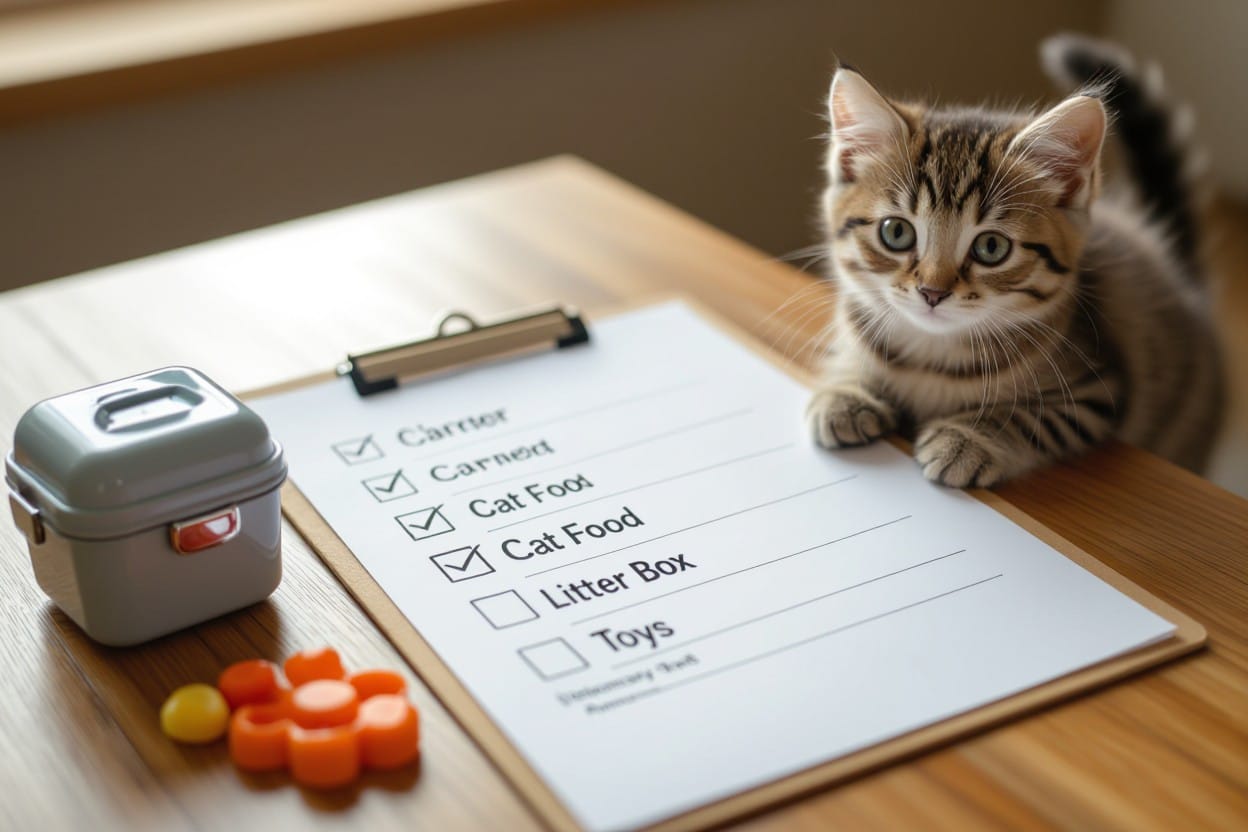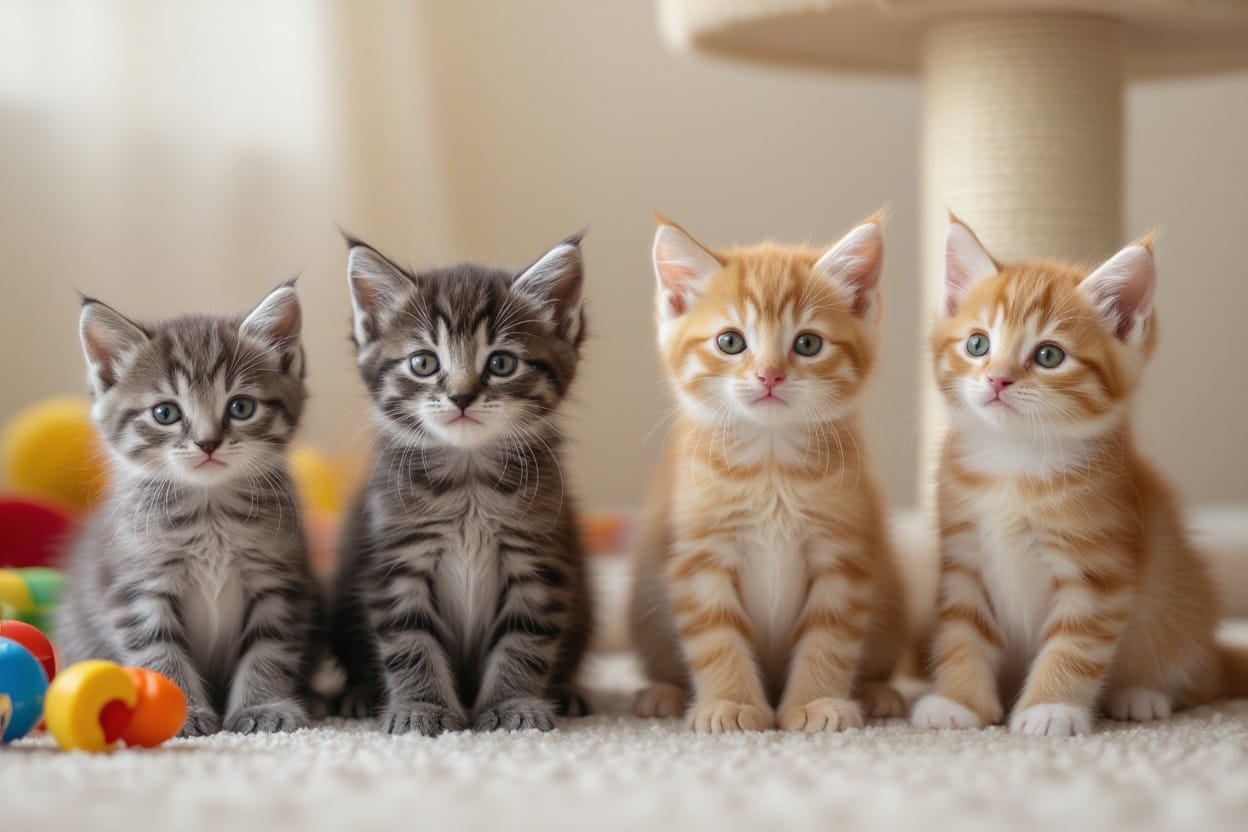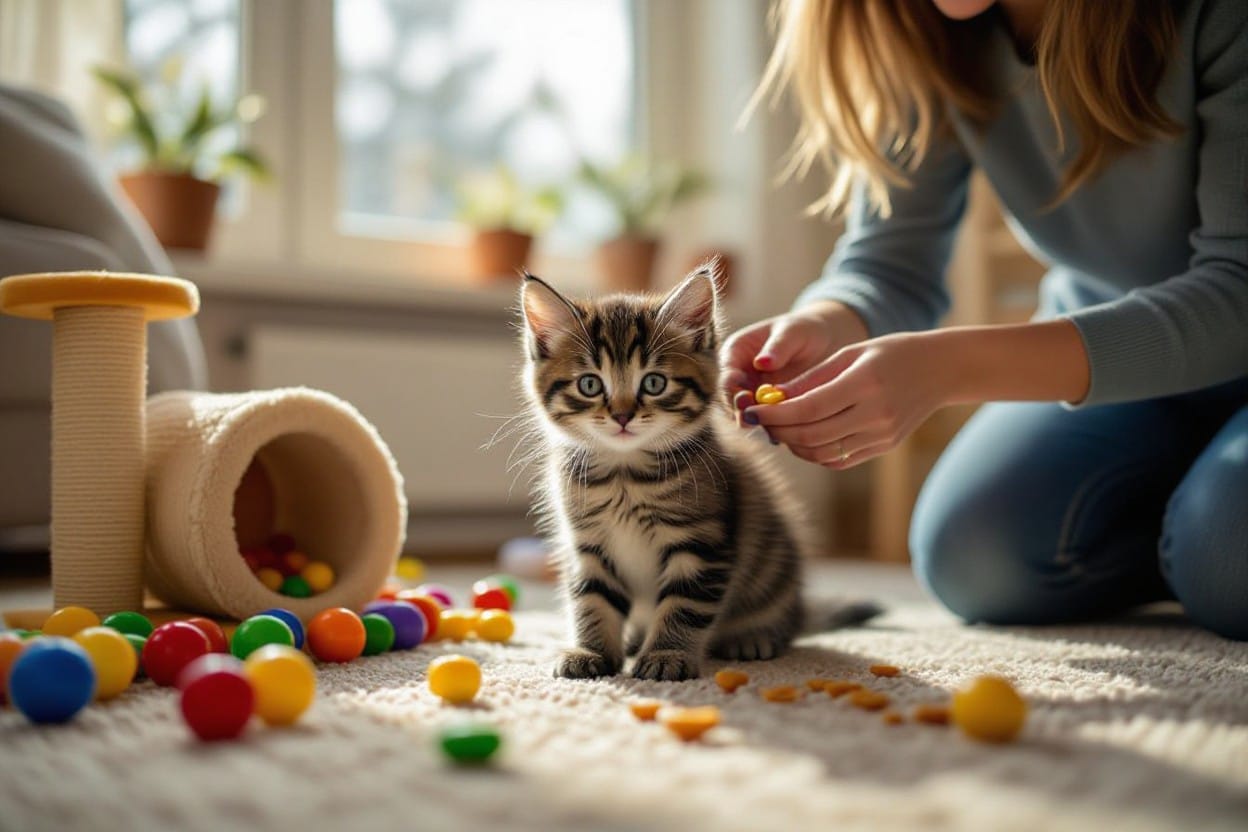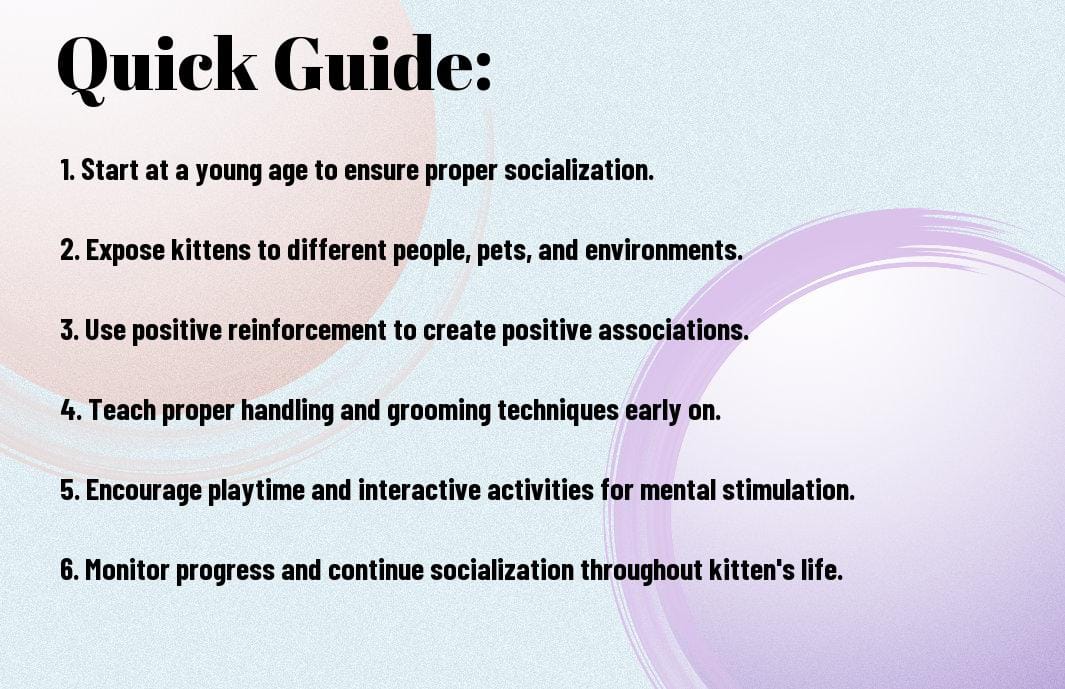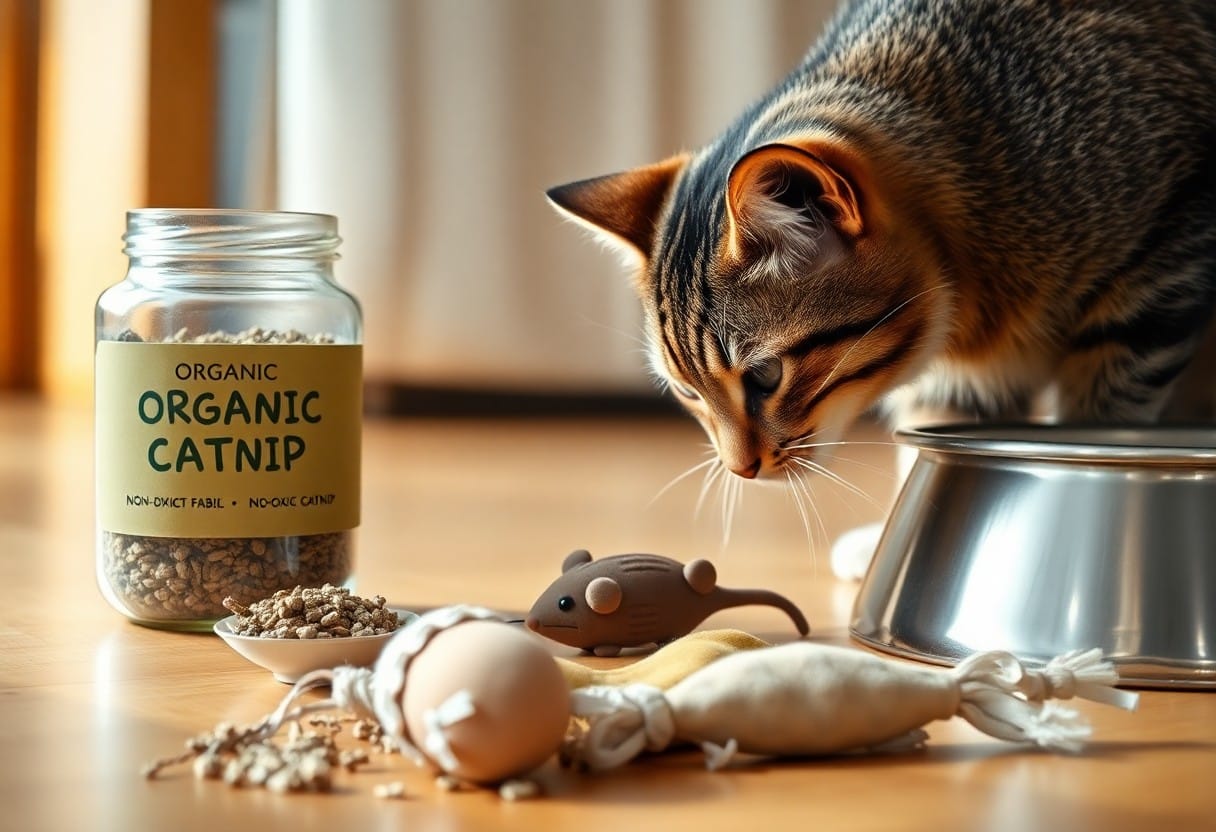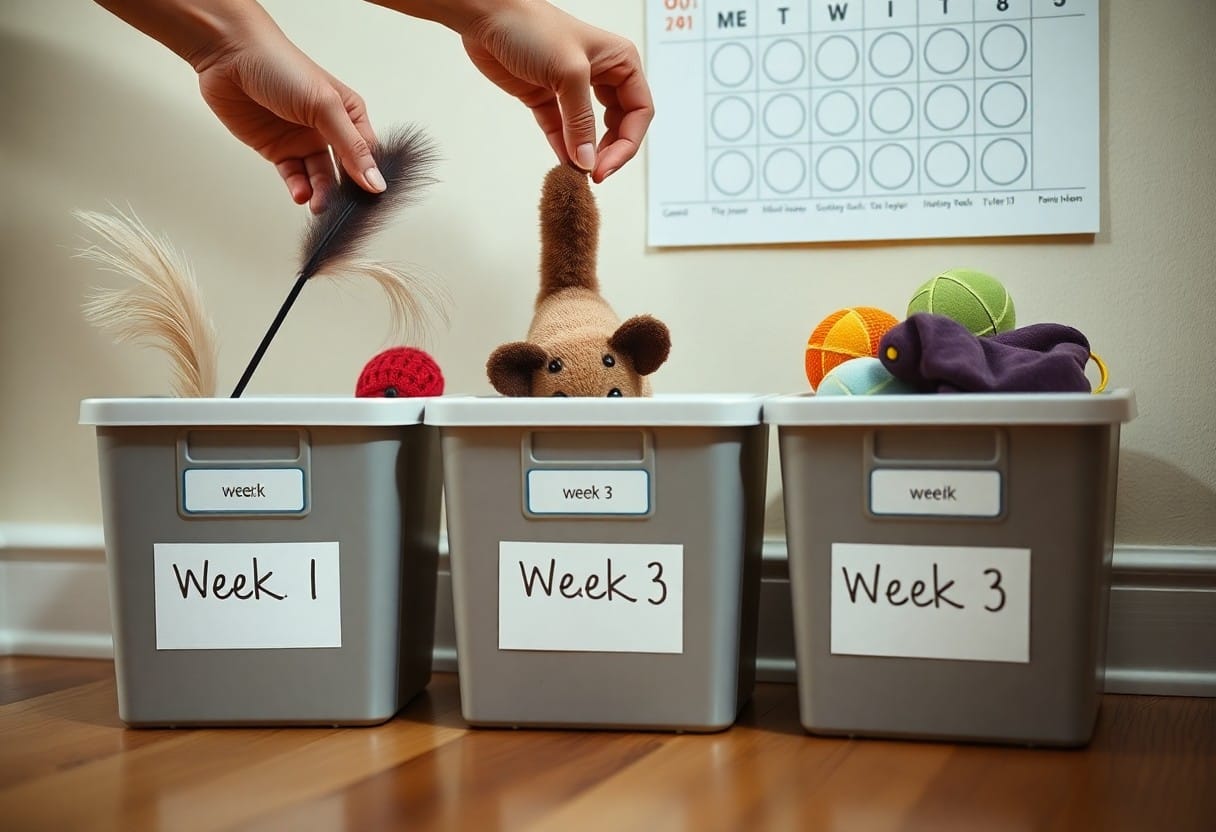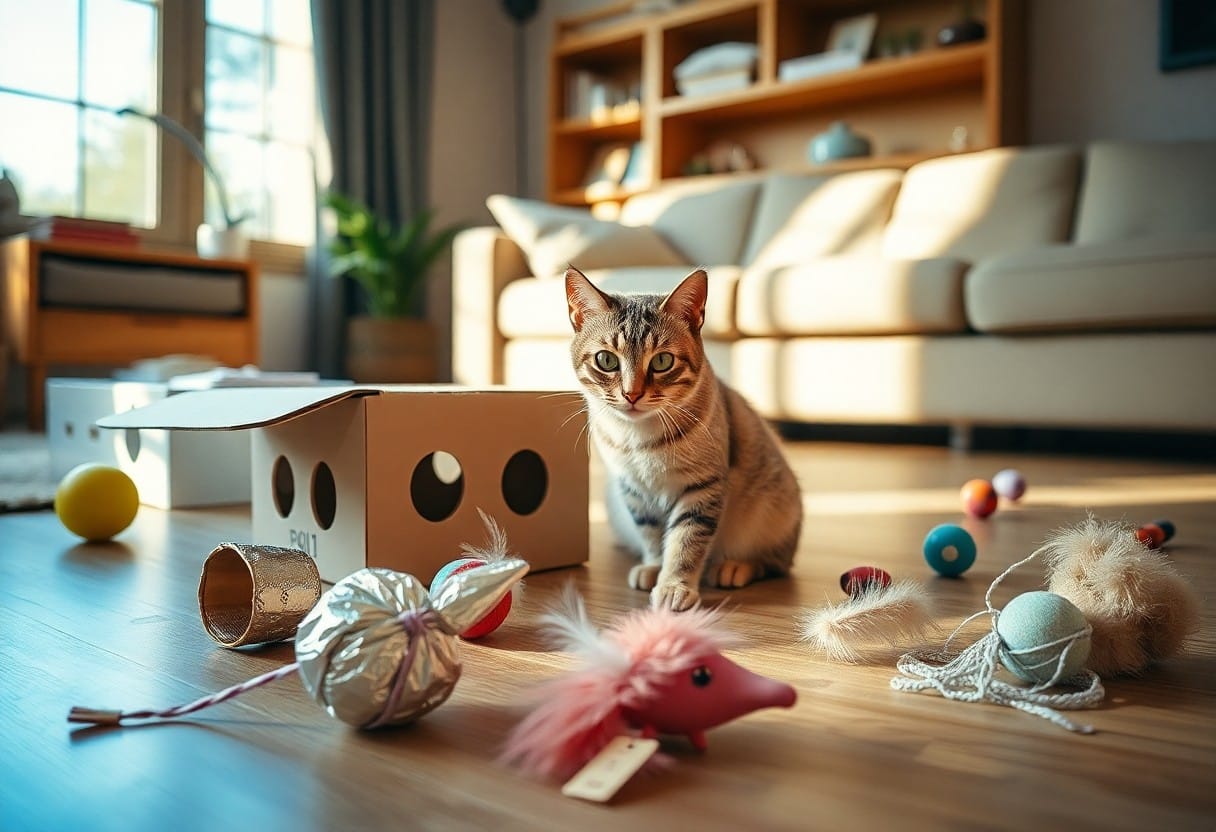Many new pet parents may not realize the importance of properly socializing kittens. However, how you introduce your kitten to various experiences and people can have a lasting impact on their behavior and temperament. In this blog post, we will discuss common mistakes to avoid when socializing kittens to ensure they grow up to be well-adjusted and confident cats.

Misstep One: Timing Is Everything
Starting Too Late
Timing is crucial when it comes to socializing kittens. One common mistake that is often made is starting the socialization process too late. Kittens are most receptive to socialization between 2 to 7 weeks of age, so waiting until they are older can make the process more challenging.
The Critical Socialization Window
Critical socialization window is a period in a kitten’s life when they are most open to new experiences and learning. This window typically occurs between 2 to 9 weeks of age, with the peak being between 2 to 7 weeks. During this time, kittens are more likely to form positive associations with people, other animals, and their environment.
With proper socialization during this critical window, kittens are more likely to grow up to be well-adjusted, confident, and friendly cats. Missing this window can lead to behavioral issues such as fearfulness, aggression, and anxiety in adult cats.
Misstep Two: Exposure and Environment
Inadequate Exposure to Humans
Misstep in socializing kittens often occur when there is inadequate exposure to humans during the critical early weeks of their development. Kittens that do not interact regularly with humans may become fearful or aggressive towards people, making it challenging to form positive relationships later on.
To prevent this, make sure to handle kittens gently and frequently from a young age. Encourage gentle play and interaction to help them feel comfortable around humans and build trust.
Overwhelming Situations and Locations
Locations that are too overwhelming can also hinder a kitten’s socialization process. Loud noises, unfamiliar scents, or crowded spaces can cause stress and anxiety, leading to negative associations with socializing.
It is crucial to introduce kittens to new environments gradually, starting with quiet and calm spaces before moving on to busier locations. This gradual exposure will help them adjust and feel more at ease in different settings.
Exposure to a variety of environments is important for kittens to build confidence and adaptability. By gradually exposing them to different locations and situations, you can help them develop the skills they need to thrive in various social settings.
Neglecting Exposure to Other Animals
On the flip side, neglecting exposure to other animals can also hinder a kitten’s social development. Without interactions with other animals, kittens may struggle to understand social cues and behaviors typical in multi-species environments.
Another important aspect is to allow kittens to interact with other animals, such as well-socialized adult cats or friendly dogs, under controlled and supervised settings. These interactions can help kittens learn to communicate and socialize effectively with other species, promoting a harmonious multi-pet household.
Misstep Three: Handling and Touch
Handling Kittens Too Roughly
Now, when it comes to handling kittens, one of the common mistakes to avoid is being too rough. Kittens are delicate creatures with fragile bones, so it’s important to handle them gently and with care. Avoid picking them up by their scruff or applying too much pressure on their bodies.
Not Encouraging Gentle Handling Techniques
Handling kittens with gentle techniques is crucial for their socialization. By not encouraging gentle handling, you may inadvertently teach the kittens to fear human touch. It’s important to show them that touch can be a positive experience by using soft strokes and speaking to them in a soothing voice.
Gentle handling techniques include supporting the kitten’s body properly, engaging in slow movements, and allowing them to approach you on their own terms. This will help the kittens build trust and feel more comfortable around people, setting a solid foundation for positive socialization experiences.

Misstep Four: Forcing Interactions
After socializing kittens for a while, it’s common for pet owners to become eager to see quick progress and start forcing interactions. However, this can do more harm than good in the long run. It’s important to remember that every kitten has its own pace when it comes to socialization and forcing interactions can lead to increased stress and anxiety for the kitten.
Ignoring Kitten’s Comfort Levels
Forcing interactions with kittens without considering their comfort levels can lead to negative outcomes. It’s crucial to pay attention to the kitten’s body language and cues to understand if they are ready for interaction. Signs of discomfort, such as hissing, growling, or trying to escape, should not be ignored. Pushing too hard can result in setbacks and make the kitten more fearful in the future.
Pushing Interactions with Other Pets
Kittens need time to build trust with other pets in the household. While it’s imperative for them to learn to coexist peacefully, pushing interactions too soon can result in fear or aggression from either party. It’s important to allow the animals to progress at their own pace, providing supervision and guidance when necessary. Slow and gradual introductions are key to successful relationships between kittens and other pets.
Interactions with other pets can greatly impact the social development of kittens. It’s crucial to create a positive and safe environment where the animals can get to know each other at their own pace. Rushing the process can lead to conflicts and setbacks in their relationships.
Misstep Five: Inconsistent Socializing Practices
All too often, kitten socialization efforts can be hindered by inconsistent practices on the part of their caregivers. This can lead to confusion and anxiety in kittens, making it more challenging for them to adapt to social interactions in the long run. It’s crucial to maintain a consistent and structured approach to socializing kittens to ensure positive outcomes.
Sporadic Socializing Sessions
For kittens, sporadic socializing sessions can be counterproductive to their overall development. Kittens thrive on routine and predictability, so irregular interactions with humans can disrupt their ability to form trusting relationships. It’s crucial to establish a regular schedule for socializing sessions to help kittens feel safe and secure in their interactions with people.
Lack of Routine in Social Interactions
Any lack of routine in social interactions with kittens can lead to missed opportunities for building strong bonds and trust. Kittens benefit greatly from consistent socialization practices, as it helps them become more comfortable and confident in their interactions with humans. Establishing a routine for socializing kittens can aid in their emotional development and overall well-being.
A consistent routine in social interactions with kittens can also help caregivers monitor their progress and make adjustments as needed to support their socialization goals. By prioritizing regular and structured socializing practices, caregivers can set kittens up for success in their interactions with people and other animals.
Misstep Six: Punishment and Discipline
Many new kitten owners may mistakenly believe that punishment and discipline are effective ways to socialize their furry companions. However, using negative reinforcement can have detrimental effects on a kitten’s development and behavior.
Using Negative Reinforcement
Discipline should never involve physical or verbal punishment towards a kitten. Negative reinforcement, such as yelling, hitting, or any form of intimidation, can cause the kitten to become fearful and anxious, leading to aggressive or defensive behavior. This can hinder the socialization process and damage the bond between you and your kitten.
Underestimating Positive Reinforcement Methods
One common mistake is underestimating the power of positive reinforcement when socializing kittens. Instead of focusing on what not to do, shift your attention to rewarding good behavior. With consistent praise, treats, and affection, kittens learn that positive actions result in positive outcomes, strengthening their trust in you and making socialization a positive experience for both parties.
Misstep Seven: Health and Wellness Neglect
Failure to Associate Vet Visits with Positive Experiences
Despite the best intentions of kitten owners, one common mistake when socializing kittens is neglecting their health and wellness needs. One crucial aspect of this is failing to associate vet visits with positive experiences. Many kittens may become anxious or scared during vet visits, which can lead to a negative association with the experience. This can make future visits more challenging and stressful for both the kitten and the owner.
Overlooking the Impact of Physical Health on Social Behavior
One of the most overlooked aspects of socializing kittens is the impact of their physical health on their social behavior. Kittens that are in pain or discomfort due to undetected health issues may exhibit behavioral changes such as aggression, fearfulness, or withdrawal. It’s vital to ensure that your kitten receives regular check-ups and has any health concerns addressed promptly to support their social development.
With early detection and proper care, you can help your kitten stay healthy and happy, which in turn will positively impact their socialization process. Remember that a healthy kitten is more likely to be confident, curious, and open to new experiences, making the socialization journey smoother for both the kitten and the owner.
Misstep Eight: Owner Expectations and Patience
Unrealistic Expectations for Kitten Behavior
Keep in mind that socializing kittens is a gradual process that requires patience and persistence. It is important for owners to understand that kittens, just like humans, have their own unique personalities and may not always behave in the same way. Any expectations of immediate results or drastic changes in behavior should be avoided. Each kitten will progress at their own pace, so it is crucial to be patient and allow them to become comfortable at their own speed.
The Need for Patience and Persistence in Socialization
Eight, socializing kittens requires a substantial amount of patience and persistence from the owner. It is not uncommon for kittens to exhibit shyness or fear when first introduced to socialization efforts. Plus, it is important for owners to consistently work with their kittens in a calm and reassuring manner to help them overcome these challenges. By providing a structured socialization routine and being patient with the process, owners can help their kittens build confidence and develop positive social skills over time.

Nurturing Social Skills in Kittens
Daily Socialization Activities
With kittens, consistency is key when it comes to socialization. Implementing daily activities that involve positive interactions is crucial for building their social skills. Some examples include interactive play sessions with toys, gentle handling to get them accustomed to human touch, and introducing them to new experiences in a controlled environment. These activities help kittens develop confidence and trust in their surroundings, which is important for their social development.
Monitoring Progress and Adjusting Techniques
Kittens should be closely monitored during socialization to track their progress and make necessary adjustments to your techniques. Pay attention to their body language, reactions to different stimuli, and overall comfort level in social settings. If a particular activity seems to cause stress or fear, modify your approach to ensure the kitten feels safe and secure. This flexible approach will help you tailor the socialization process to the individual needs of each kitten.
Progress in socialization can vary greatly between kittens, so it’s important to be patient and observant. Some kittens may quickly adapt to new experiences and interactions, while others may require more time and gentle encouragement. By consistently monitoring their progress and adapting your socialization techniques accordingly, you can help each kitten reach their full potential in terms of social skills and confidence.
To wrap up
Presently, avoiding common mistakes when socializing kittens is crucial to ensuring they grow up to be well-adjusted and social cats. By providing a safe and positive environment, introducing them to new experiences gradually, and being patient and consistent in your approach, you can help your kittens develop into friendly and confident feline companions.
Remember to respect their individual personalities and not rush the socialization process. With time, effort, and the right guidance, you can help your kittens build trust and form strong bonds with you and others in their environment. By being mindful of these potential pitfalls and following best practices, you can set your kittens up for a lifetime of happiness and social success.
FAQ
Q: What are common mistakes to avoid when socializing kittens?
A: Common mistakes to avoid when socializing kittens include forcing interactions, neglecting proper handling techniques, skipping the acclimation period, overstimulating the kittens, and not providing a safe and comfortable environment.
Q: How can forcing interactions affect the socialization process of kittens?
A: Forcing interactions can make kittens fearful and stressed, causing them to associate socialization with negative experiences. This can hinder their ability to trust humans and may lead to behavioral issues in the future.
Q: Why is proper handling vital when socializing kittens?
A: Proper handling helps kittens feel safe and comfortable, allowing them to build trust with humans. Mishandling can lead to injuries, fear, and aggression, making it difficult to socialize the kittens effectively.
Q: What is the acclimation period, and why is it important in the socialization process?
A: The acclimation period is a crucial time for kittens to get used to their new environment and caregivers. Skipping this period can cause stress and anxiety, making it challenging for the kittens to adjust and form positive associations.
Q: How can overstimulation impact the socialization of kittens?
A: Overstimulation can overwhelm kittens, leading to fear, aggression, or withdrawal. It is vital to monitor their behavior and provide breaks to prevent overstimulation, allowing for positive social experiences.

